Where To See Renaissance Sculpture In Florence
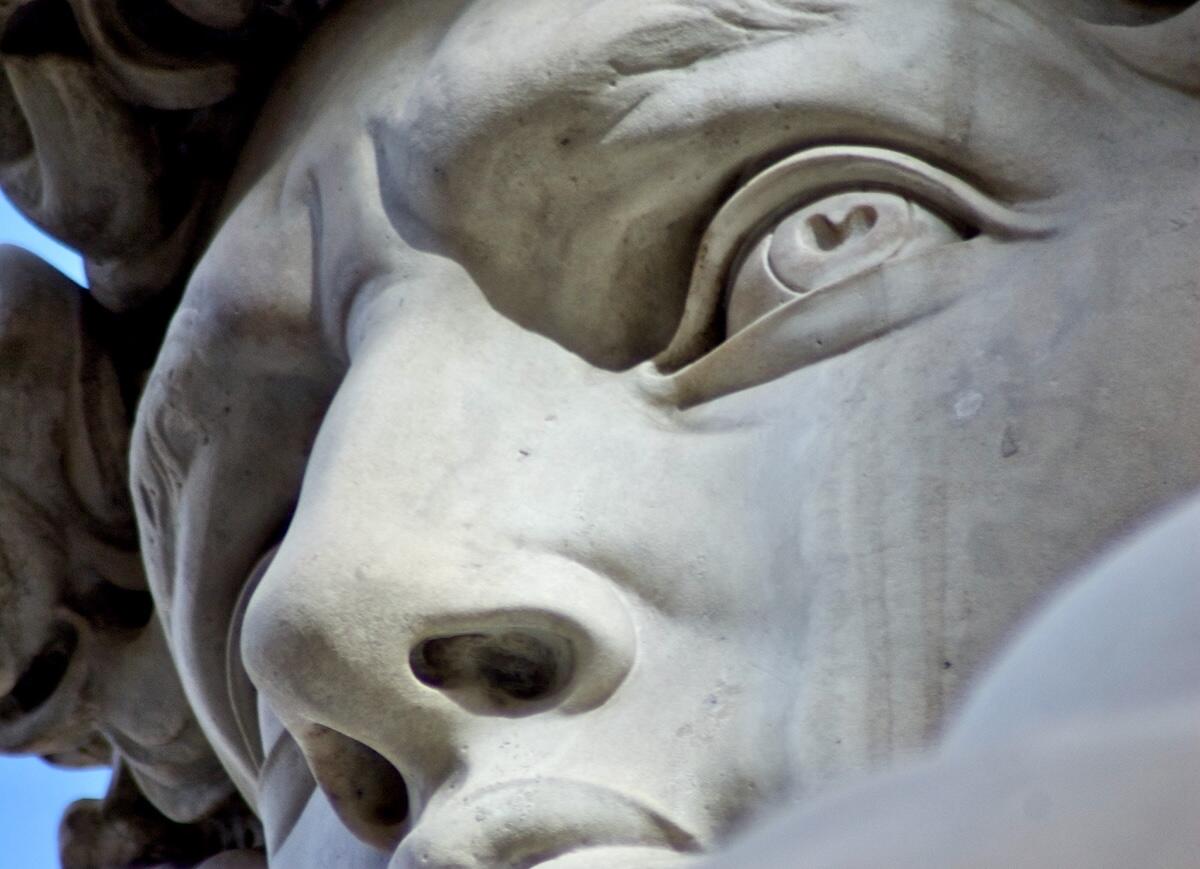
You probably know that Florence is the city in which the Renaissance was born. You may not be totally familiar with the concept that the style we call "Renaissance" first became apparent in sculpture, rather than in painting and architecture, which followed soon after.
Below we detail some of the museums, outdoor spaces, and individual sculptures that are not to be missed.
Renaissance Sculpture in Florence: A Visitor's Guide
Florence isn't just the birthplace of the Renaissance - it's where this transformative movement first emerged through sculpture, predating its influence on painting and architecture. While many visitors focus on Florence's stunning paintings and architecture, understanding the city's sculptural heritage provides deeper insight into how the Renaissance revolutionized artistic expression.
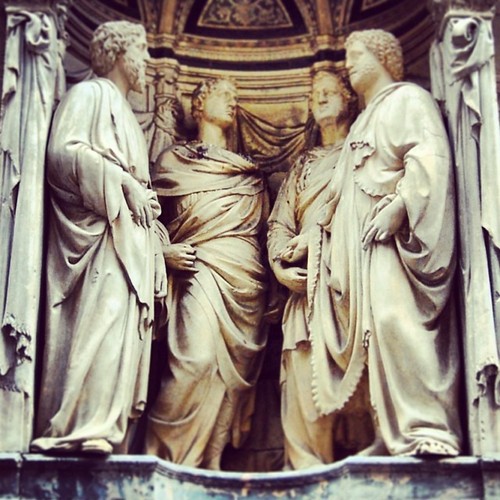
The Birth of Renaissance Sculpture at Orsanmichele
Orsanmichele stands as a testament to Florence's unique blend of commerce, faith, and artistic innovation. This remarkable building, which began as the city's grain storage facility before being transformed into a church, houses some of the earliest examples of Renaissance sculpture. Each of Florence's powerful guilds was tasked with commissioning a sculpture for the building's exterior niches, leading to an unprecedented artistic competition that would help define Renaissance style.
The artistic rivalry between the established bronze master Ghiberti and the young innovative Donatello in the early 1400s played out in these commissions. While Ghiberti continued working in a refined late Gothic style, Donatello introduced revolutionary approaches to representing the human figure. Today, visitors can see high-quality replicas in the exterior niches, while the original sculptures are preserved in the Orsanmichele Museum, open on Mondays from 10 AM to 5 PM. The museum entrance fee provides access to the fascinating upper floors of this historic building.
The Revolutionary Spirit of Early Renaissance Sculpture
The Renaissance brought dramatic changes to sculptural style that would influence art for centuries to come. Where medieval sculpture often featured stiff, hieratic figures with standardized faces and formal poses, Renaissance sculptors sought to capture the reality of human form and expression. Donatello led this revolution by introducing naturalistic poses, particularly the contrapposto stance with weight resting on one leg and a shifted hip. His figures displayed individualized facial features that suggested inner life and psychological depth, moving decisively away from decorative, stylized representations toward a new humanism in art.
Major Collections and Their Significance
Museo dell'Opera del Duomo
The museum houses an extraordinary collection of sculptures originally created for the Cathedral complex. Here, visitors can trace the evolution from medieval to Renaissance style through works commissioned by the Operai, the Cathedral Works Committee. Among its treasures is Donatello's haunting wooden Mary Magdalene, a work that combines startling realism with profound spiritual intensity. The medieval reliefs from the Campanile provide fascinating context for understanding the artistic revolution that followed.
The Bargello National Museum
Housed in a former prison and police headquarters, the Bargello (tours, tickets) now stands as one of Italy's premier sculpture museums. The Donatello Room showcases the master's evolution from his early works to his mature style. Visitors can see Michelangelo's youthful Bacchus, where the artist's unprecedented understanding of anatomy and movement is already evident. Verrocchio's David demonstrates how the next generation built upon Donatello's innovations while developing their own distinctive approaches.
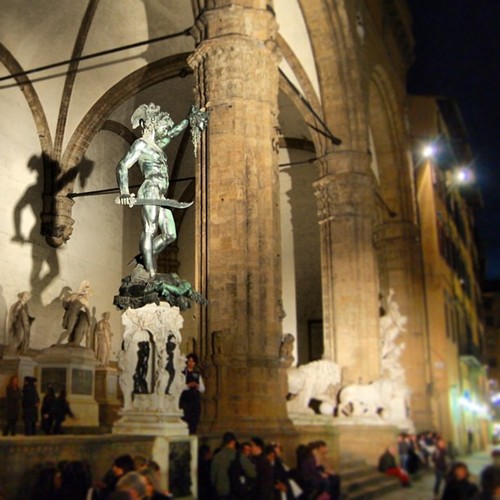
Piazza della Signoria and Loggia dei Lanzi
This remarkable outdoor sculpture gallery has been the heart of Florentine civic life for centuries. The Loggia dei Lanzi offers a unique opportunity to see monumental sculpture in its intended outdoor setting, mixing Roman antiquities with Renaissance masterpieces. Cellini's bronze Perseus (still the original) stands as perhaps the most dramatic example of Mannerist sculpture, while the various replicas throughout the piazza help visitors understand how these works would have appeared to Renaissance Florentines.
The Triumph of David
No discussion of Florentine sculpture would be complete without mentioning Michelangelo's David, now housed in the Accademia Gallery (tickets, tours). Moved from its original location in Piazza della Signoria in the 1870s, this colossal marble masterpiece represents the culmination of Renaissance sculptural innovation. The statue combines unprecedented technical skill with profound symbolic meaning, embodying both civic pride and artistic achievement.
A Legacy in Stone and Bronze
Florence's sculptural heritage demonstrates how Renaissance artists revolutionized the representation of the human form and set the stage for centuries of artistic development. When visiting these sites, take time to notice how different artists approached similar subjects, how materials were chosen for specific effects, and how sculptural style evolved over the course of the 15th and 16th centuries. Early morning visits (or very late afternoon) often provide the best opportunity for quiet contemplation of these masterpieces that changed the course of art history.
Remember that while many of the outdoor sculptures are replicas, this practice of preservation ensures that future generations can continue to appreciate these revolutionary works in their original locations, while the authentic pieces remain protected in museum settings.
Comments:
Last update:
What's New?
-
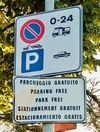
Florence Parking Guide & Map
Feb 23, 2026
-

Top Ten Luxury Hotels in Florence
Feb 9, 2026
-

Piazza San Marco
Jan 5, 2026
-
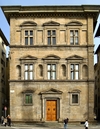
Piazza Santa Trìnita
Dec 2, 2025
-

Ceramics Fair (Fiera della Ceramica)
Oct 1, 2025
Top experiences in and around Florence:
Some links to external websites may be affiliate links (hotel bookings, guide books, activities, etc.). Using these services helps to support our efforts here with no additional costs to the user (you!).